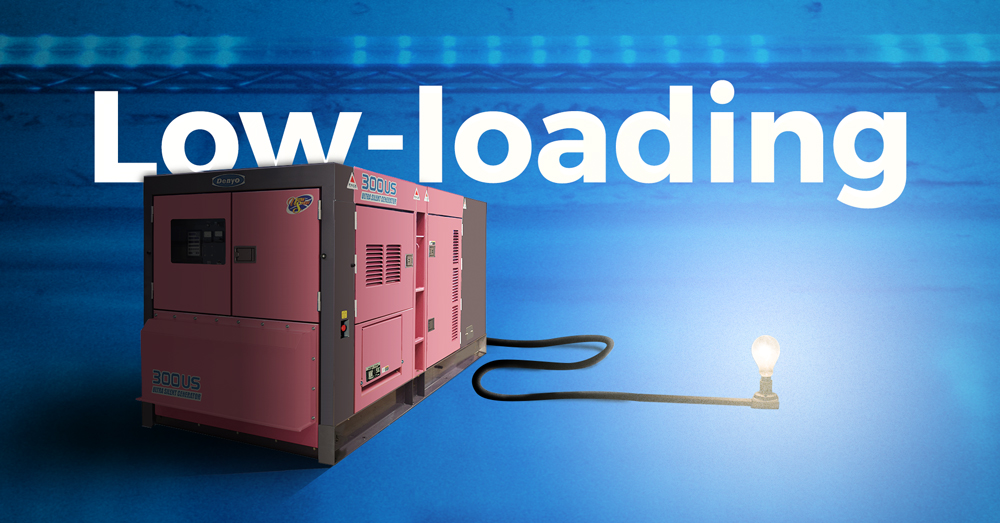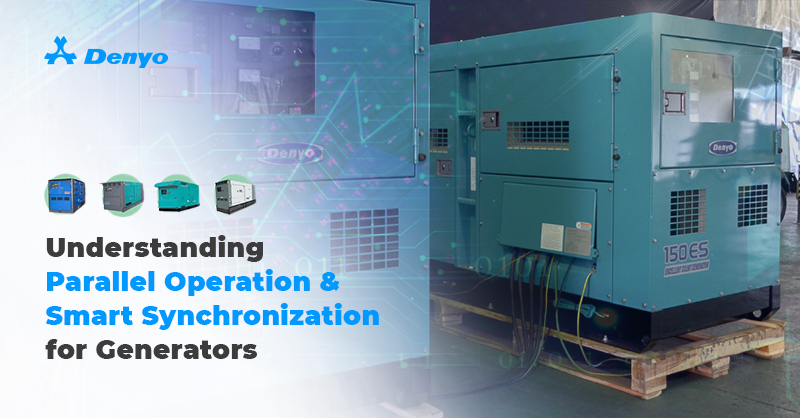Do You Know… the Impact on Low-loading of Generator Set?

It is critical for your generator to be in its optimal health as it is the first step of running a successful operation. It requires the utmost attention for long-term system reliability, availability, and uptime. But do you know when generators are not maintained and loaded properly; they can be the cause of unplanned downtime, increased operating costs, undue wear and increased emission outputs?
Diesel engines can suffer damage as a result of misapplication or misuse – namely internal glazing and carbon build-up. This is a common maintenance issue in generator sets caused by operating the engine on a load of less than 40% of the Maximum Continuous Rating (MCR). However, this is often overlooked by the client as it may seem trivial, but loading a generator properly is essential to uptime and pro-longing of the engine lifespan.
Problems that low-loading will cause to your machine:
Running an engine under low loads causes lower cylinder pressures, resulting in ineffective piston ring sealing and poor combustion. This poor combustion will lead to soot deposits which clog and gums piston rings, which causes a further drop in sealing efficiency and exacerbates the initial low pressure. The injectors are likely to have a build-up of carbon that is highly abrasive and could cause bore polishing, which then leads to increased oil consumption and further loss of pressure. Due to the carbon build-up in the injectors, unburnt fuel will leak past the piston rings and contaminates the lubricating oil, causing further deterioration in combustion and heavy smoke from the exhaust.
Internal glazing occurs when hot combustion gases blow past the now poorly sealed piston ring, causing the lubricating oil on the cylinder walls to ‘flash burn’. Once glazing or carbon build-up has occurred, it means that the engine will soon become irreparably damaged and may not start at all. This can only be repaired with a complete engine overhaul, stripping down the engine and re-boring the cylinder bores, cleaning and de-coking combustion chambers, fuel injector nozzles, and valves.
Problems that low-loading will cause to your business:
When running on low-load, generator will emit not only white smoke from unburnt fuel but over time is joined by the blue smoke of burnt lubricating oil leaking past the damaged piston rings, and the black smoke caused by the damaged injectors. With increased environmental requirements, this pollution is unacceptable to the authorities and will only place a bad image of your company.
With the damaged parts in the generator, it can result in reduced output, reduced lifecycles and unscheduled downtime – compromising your overall business operations. Repair cost can be massive too because of the cycle of degradation; in which a complete engine overhaul is unavoidable.
How to prevent low-loading?
You can prevent these problems by running your engine at full load at 100% periodically, and you can decide when to do so by monitoring load profile and lubricating oil condition through Denyo SmartRMS.
If detected in the early stages, running an engine at maximum load to raise the internal pressures and temperatures, allows the piston rings to scrape glaze off the bores and allow carbon build-up to be burnt off. If unsure, always engage your generator vendor to ensure early detection and rectification of glazing and carbon build-up.


